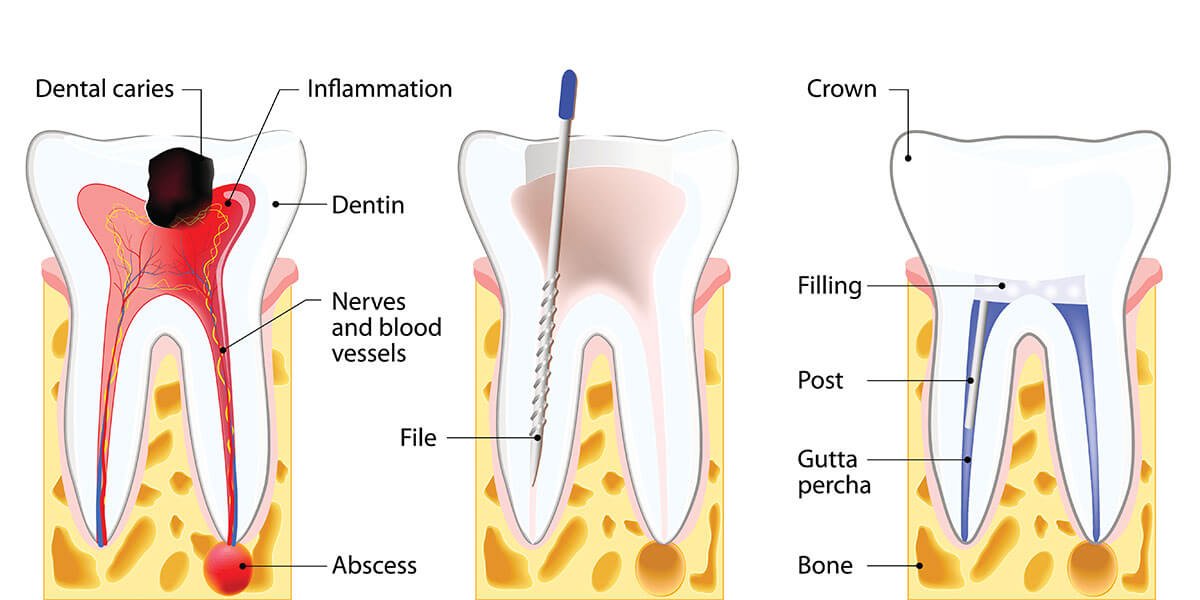
Root canal treatment is a procedure to save a tooth from extraction. It removes infected tooth-pulp and replaces it with a filling. A dental crown is sometimes used in addition to restore strength.
A root canal treatment is also called endodontic treatment or therapy. Many people are afraid of the treatment. They think that the treatment is painful and some would rather have the tooth extracted than save it. At Agarwal Dental Care, root canal treatments are safe and nearly painless.
What is a Root Canal Treatment?
Your tooth’s pulp, a soft tissue that contains blood vessels, nerves, and connective tissues, can be infected for a number of reasons. Once infection takes hold, it spreads down to the tooth’s roots resulting in swelling, pain, sensitivity, dental abscesses, and eventual tooth loss.
A root canal treatment stops this from happening by removing the infected pulp and replacing it with a dental filling; therefore stopping the cascade of damage. The success rate for a root canal treatment is high. About 90 to 95 percent of patients who undergo the procedure have a fully functional tooth after the treatment.
Procedure
The root canal treatment follows a step by step procedure to ensure safety. Once it is established that you are an ideal candidate, the treatment commences. The root canal that houses the damaged pulp is cleaned thoroughly. After the infected pulp is removed, a temporary filling is placed. At your next appointment, we will apply the permanent tooth filling. A dental crown is often used to cap the tooth and ensure maximum strength. The severity of the damage and previous dental jobs performed on the tooth are among the factors that affect the duration of the procedure. Most root canal treatments take 3 to 4 appointments.
Symptoms That You Have An Infected Pulp
- Sudden and unprovoked pain in the tooth, cheeks, or jaw
- Tooth sensitivity
- Swelling of the gum near the affected tooth
- Dental abscess
- Pain when eating, speaking, and opening of mouth
- General discomfort leading to lack of sleep
- The abovementioned conditions are the telling signs that you might have an infected pulp. However, there are instances when an infected pulp does not show any symptoms until it’s too late. In these cases, only your dentist, through regular dental check ups, can properly diagnose your condition.
- Issues Resolved
Issues Resolved By Root Canal Treatment
- Advanced gum disease
- Worn down tooth
- Severe tooth decay
- Decay beneath a deep filling
- Repeated dental treatment on a specific tooth
- Breakdown of an existing filling or crown
- Cracked teeth
- Trauma that damages a tooth





